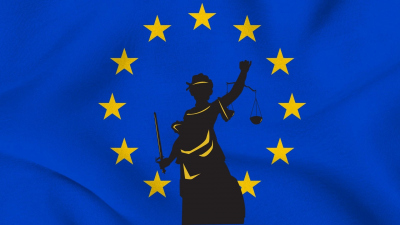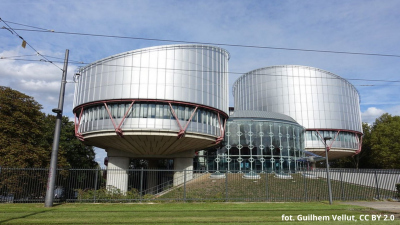
It is impossible to transcribe a foreign birth certificate in which two women are listed as parents, ruled the Supreme Administrative Court. The ruling follows the line of authority expressed in a SAC resolution from December 2019.
The HFHR participated in the proceedings.
The case concerned the refusal to transcribe the birth certificate of a child born in the United Kingdom. The UK birth certificate lists two women as parents of the child. The Head of a Registry Office refused to transcribe the birth certificate, arguing that such transcription would be incompatible with the fundamental principles of Polish legal order. The RO Head’s decision was upheld by the Province Governor and later by a Provincial Administrative Court. The PAC emphasised if the content of a foreign birth certificate, which, apart from the mother of the child, lists a woman as the other parent (effectively naming two persons of the same sex as the child’s parents) was transcribed to Polish vital statistics records, this would constitute a violation of the basic principles of the Polish legal order. The child’s mother lodged an appeal against the PAC ruling to the Supreme Administrative Court.
Supreme Administrative Court: the birth certificate will not be transcribed
The Supreme Administrative Court has already looked into this case in December 2019, when a seven-judge panel resolved that it was inadmissible to transcribe a birth certificate with two persons of the same sex listed as the child’s parents. According to the December resolution, such a transcription would be irreconcilable with the basic principles of the Polish legal order, as it would lead to the issuance of a birth certificate containing particulars of persons of the same sex as parents, whereas the Polish law does not recognise same-sex parenthood. More information about the case can be found here.
Later on, the case landed on the docket of a three-judge panel of the SAC, who referred it, in spring 2019, to a seven-judge panel. The Helsinki Foundation joined the proceedings and submitted that the SAC should make a request for a preliminary ruling to the Court of Justice of the European Union The Foundation argued that the refusal to transcribe and recognise the parenthood of same-sex persons constitutes an obstacle to the exercise of the freedom of movement protected by EU law. However, the Supreme Administrative Court did not refer the question to the CJEU.
In its decision, the SAC reminded its obligation to follow its own reasoning presented in the resolution of the seven-judge panel from December 2019. Accordingly, the SAC held that it was impossible to transcribe the birth certificate, which lists two persons of the same sex as the child’s parents. “The ruling means that both the child’s identity and ties with parents may be contested. In order to clarify the child’s legal status, the parents have to initiate separate proceedings for issuing an identity document or for assigning a personal identification number. Unfortunately, the outcome of these proceedings is far from certain”, says Jarosław Jagura, an attorney with the HFHR.
The HFHR was a participant in the proceedings. Interventions were also filed by, among others, the Ombudsman, Ombudsman for Children and a deputy of the National Prosecutor. The child’s mother was represented by lawyers from the Campaign Against Homophobia.
ECtHR to rule in a similar case
A similar case is pending before the European Court of Human Rights. It involves another same-sex couple who was refused the transcription of a birth certificate in 2015. At the time, the HFHR took part in the submission of the application before the Strasbourg Court. To find out more about that case, use this link.
The upcoming ECtHR’s judgment will be crucial in cases concerning the transcription of birth certificates of children of same-sex couples and may undermine the jurisprudence of Polish courts unfavourable to these families.


